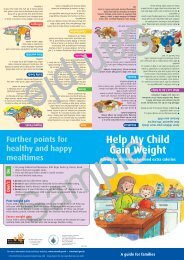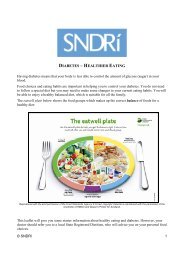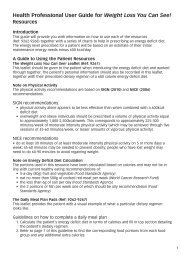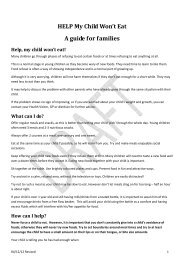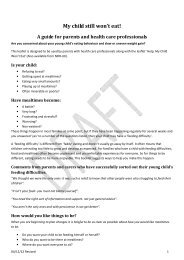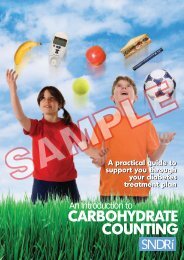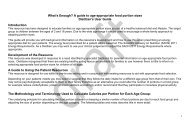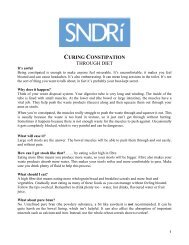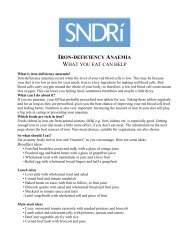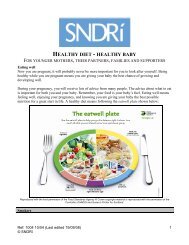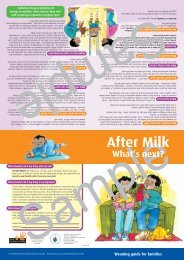Cardio-protective Diet for You - NDR-UK
Cardio-protective Diet for You - NDR-UK
Cardio-protective Diet for You - NDR-UK
Create successful ePaper yourself
Turn your PDF publications into a flip-book with our unique Google optimized e-Paper software.
- If your total fat intake is high or you are overweight, it may be beneficial to reduce<br />
the overall amount of fat in your diet in addition to decreasing your cholesterol.<br />
Tips <strong>for</strong> swapping saturated fats with unsaturated fats<br />
- Replace butter with an olive-oil based spread.<br />
- Use mashed avocado and lemon juice instead of mayonnaise in sandwiches.<br />
- Use olive oil or nut oil dressings instead of mayonnaise-style dressings.<br />
- Add seeds and nuts to dishes such as soups, salads and cereals.<br />
- Snack on nuts and seeds in place of snacks high in saturated fat, but remember to<br />
only eat small quantities if you are trying to lose weight as they are high in calories.<br />
- Use olive oil or vegetable oil <strong>for</strong> cooking in place of butter, lard or ghee.<br />
- Try to substitute butter with vegetable-based spread or oil in baking.<br />
• Fish<br />
Fish can be divided in two groups – white fish and oily fish. Both of these are important<br />
foods to include in your diet in order to keep your heart healthy.<br />
White fish are a very low-fat and low-calorie source of protein. Oily fish contain high levels<br />
of unsaturated fats called omega-3 fats. These help to protect your heart and keep your<br />
blood thin.<br />
Current recommendations <strong>for</strong> the whole population are to include 2 portions of fish (1<br />
portion = 140g) per week with at least one of these being an oily fish. If you have<br />
previously had a heart attack, then this recommendation is increased to 2-3 large portions<br />
of oily fish per week.<br />
Women who are pregnant, breast feeding or likely to become pregnant are advised to limit<br />
their oily fish intake to 2 portions per week or 4 medium-size cans of tuna per week.<br />
Additionally they should avoid eating shark, marlin and swordfish.<br />
Types of fish<br />
Oily fish<br />
White fish<br />
Salmon Trout Cod Canned crab<br />
Mackerel Sprats Bass Rock<br />
Kippers Anchovies Haddock Coley/pollock<br />
Pilchards Skippers Plaice Hake<br />
Sardines Sild Sole Kingfish<br />
Herring Fresh tuna Tilapia Canned tuna<br />
Fresh crab Swordfish<br />
(only have once<br />
per week)<br />
Fish oil supplements and non-fish sources omega-3 fats<br />
If you do not eat fish or oily fish you may want to think about taking a once daily fish oil<br />
supplement. These are available from all pharmacists and health food shops. <strong>You</strong><br />
should look <strong>for</strong> a supplement containing fish body oils specifically docosahexaenoic<br />
acid (DHA) and eicosapentaenoic acid (EPA). Specific amounts of these vary between<br />
120404Heart Health <strong>for</strong> HIV DRAFT<br />
5



